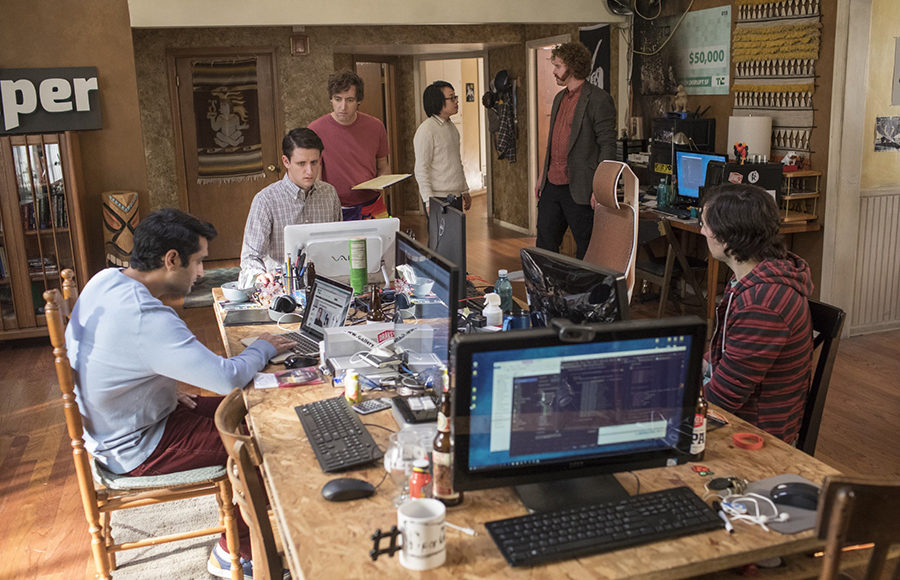Our son has reached that age where he’s starting to mainline some of the same shows we do. The other day he completed HBO’s ‘Silicon Valley,’ a funny little 6-season series following the trials and tribulations of a tech startup.
Despite loving the show, our son was a bit disappointed by its conclusion. The reason? Hopefully without giving too much away, the little cast of digital visionaries do indeed find enormous success with their invention, but like the good Dr. Frankenstein, ultimately recognize they must kill their AI-inspired beast lest it wreak unspeakable havoc on the world.
Translation: the players didn’t get rich. To our son, raised in a culture that celebrates material success above all else, this result was deflating. The characters worked long and hard, overcame countless obstacles, and came away with nothing. Hardly a Capitalist fantasy.
My wife and I, steeped as we are in the tech world, loved the ending. Moreover, we’re old enough to recognize that most of the people we know with gobs of money are a bit, well, empty. The last thing we wanted to see was the show’s little band of digital adventurers become obscenely wealthy.
What Matters?
The discussion with our son was both ironic and timely given that just days earlier my wife and I had been discussing what, exactly, makes these serial narratives so appealing. Our verdict: they give us the opportunity to eavesdrop on the every day lives of fictional characters. We get to watch them grow and evolve, stumble and fall and rise again, laugh and cry, panic and persevere….
In other words, we get to watch life doing its thing through the lives of these characters. The setting, the era, the big events, none of those things matter so much as the characters themselves.
Which is exactly the opposite of how we approach so-called ‘real life,’ isn’t it? We focus on the big events, the big house, the big money. And we overlook the day to day minutia that constitutes what life really is.
Not surprisingly, this is one of themes that run through the teachings of philosophers and mystics. It’s also one of the big lessons brought back by those who experience near-death experiences (NDE). The lesson: we’re missing what life is truly about, because we’re so focused on what it’s not about.
The typical NDE tells us that our big goals and accomplishments, our money and material goodies, our political positions and belief systems, are meaningless. To whit, picture for a moment, the shiny new renovated kitchen, the months of planning and effort, the expense. Then comes the big reveal. Awesome! Except that because it’s a dead thing it immediately goes right back to being a kitchen, dusted with crumbs and grease.
What matters is what happens IN the kitchen, the conversations, the sharing, the connecting; the marveling at the scents and textures and diversity of food; the satisfaction and joy of feeding and tending to the wants of others.
A similar sentiment is nicely captured in a classic Zen expression (just replace renovated kitchen with enlightenment). “Before enlightenment, chop wood, carry water. After enlightenment, chop wood, carry water.”
A Life of Dead Things
What are we taught from an early age? To focus our time and energies on accomplishing big things, getting good grades, securing a spot in a noted college, landing a prestigious job, earning lots of cash, acquiring splashy material things, and so on. In short, we are taught to construct our lives around dead things.
Little wonder that so many of our children feel apathetic about school; that the vast majority of adults feel equally listless and uninspired in their jobs; that so many young couples have been hoodwinked into mistaking passion and sex for the makings of a beautiful relationship. Where, in this equation, is the life?
And so I asked my son to articulate, as best he could, what he most enjoyed about Silicon Valley and programs like it.
He thought about it for a moment and said, “I guess the characters and how they were always struggling and making fun of each other and having to overcome one crazy problem after another and how they all cared about each other even when they pretended not to.”
“So when you look at it that way, does it really matter that they didn’t get crazy-rich? Would you have enjoyed the show less knowing, at the start, they weren’t ever really going to hit the jackpot?”
He paused for a long time and then smiled. “No, I guess it wouldn’t have mattered at all. Now I want to go back and watch it again.”
I loved him for that answer.

Years ago our daughter, struggling with a relationship, asked my wife and I over dinner what we thought love was. Without thinking, I blurted out: “This. The talking, the sharing, the listening and caring about what the person across from you cares about. Sharing a meal, laughing, arguing, connecting.”
Nodding, my wife jumped in: “Taking the time with each other, every day. Doing what we’re doing right here. That’s love.”
It was one of those magical moments where wisdom springs from the lips before our minds can get in there and make a mess of things.
Life During Life
Raymond Moody popularized the study of NDEs with his book, Life After Life, a book I wolfed down one afternoon during one of my many teenaged depressive jags. The stories of the NDEs gave me hope, helped me to see that there might indeed be more to life than the insanity all around me.
Today, I recognize the uncanny parallels between the teachings of the mystics and the messages of the NDEs. And I see that with each day I focus on the ‘big dead things’ I lose a precious opportunity to recognize and enjoy the countless ‘little things’ that constitute my life.
What if, instead, we reoriented our perspectives to focus on the small stuff, the minutia, the wind in a tree, the taste of honey, the every day conversation with a loved one? What if we shelved all the judgments about, well, everything, and just appreciated life as the temporary gift that it is?
Or as Natalie Sudman so marvelously put it in her NDE:
It is possible to participate in this life, to get into a role with passion while still remembering that it is just a role – that we are actually whole beings: indestructible, safe, utterly beautiful. The best plays are the ones in which the actors are so good, we all — actors and audiences — give ourselves over to the story. But in the end the curtain comes down – we always know it is a play.
Natalie Sudman
During one of the last youth basketball games I ever coached, I was graced with a reminder not unlike what Sudman shared above. I was reminded to stop for a moment and just soak it all in because it was almost over.
And so I stood there and watched the boys warming up – boys who over the years I’d watched develop into young men, each of whom I’d come to love and appreciate for his own particular story. I glanced over at my wife and the team parents and felt great affection for them and their many sacrifices. I breathed deep the gymnasium’s telltale scent of perspiration and waxed hardwood – a smell with which I’d become intimately familiar over 40 years of playing and coaching.
Suddenly I felt a deep sense of both melancholy and gratitude, melancholy that it was drawing to a close, gratitude that I’d had the opportunity. And I saw that these were two sides of the same coin, that one was not possible without the other.
What a gift we’ve been handed in this crazy experience we call life.



